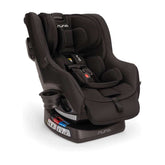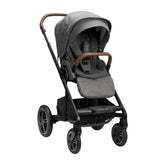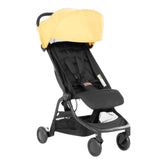8 Smart Tips to Manage Aggressive Behavior in Toddlers

Update 7 Jan 2025
There are moments when your child's behavior fills your heart with warmth and affection, yet there are also times when it can be a source of frustration. During their toddler or preschool years, your child may struggle with self-control, making it difficult for them to express their anger in a calm manner. They may resort to hitting or biting out of frustration. Regulating our emotions is a learned skill that children acquire over time. It may take some kids a little longer to master the process than others. Let’s take a look at how to deal with aggressive toddler behavior and why it happens.
What Causes Aggressive Behavior in Toddlers?
Curious about what’s causing such a feisty response in your little one? Basically, it boils down to a combination of lots of excess energy, a limited vocabulary, and often, simply being tired or hungry. Even the most chill toddlers may hit, bite, or kick when they’re feeling frustrated, angry, or overwhelmed by their emotions. For some little ones, just the sheer adrenaline rush of getting physical may be motivation enough. Physical expression of any powerful emotion is very primitive and natural for toddlers. Keep in mind also that toddlers lack empathy, social skills, and self-control. Developmentally, they’re just not there yet. It’s up to you as a parent to teach them healthier ways to express their emotions.
All children experience big emotions that can get the best of them in social situations. Slumberkins Pacific Hammerhead Kin teaches them how to take a breath when they’re mad, calm down, and make it right. The determination of young children can often lead to conflict, especially as they begin to explore the world around them and play with others. Children will carry the social skills and emotional regulation they’ve learned through Hammerhead's affirmation with them as they work to make healthy decisions.

Slumberkins Pacific Hammerhead Kin
How to Redirect an Aggressive Toddler: Tips for Dealing with Aggressive Toddler Behavior
Though periodic bursts of aggressive behavior in toddlers are expected (especially during a temper tantrum), there are measures you can take to influence your child’s behavior. Here are a few tips on managing aggressive toddler behavior from the American Academy of Pediatricians (AAP).
1. Set clear expectations.
As a parent, it's essential to educate your children about household rules. Think about it: toddlers are new to the world. They’re not going to be aware of the dos and don'ts until someone teaches them. Toddlers are curious and like to touch and investigate things so keep harmful or valuable items out of reach. You could also allocate a specific area in your home where your little ones can play with their toys and books. Be prepared to repeat the house rules every single time your child breaks one, and understand that it may take a while before the lesson really sinks in.
2. Don’t use threats.
Threats don’t really work with toddlers. Encouraging and reinforcing desirable behaviors, as well as teaching children new behaviors, is usually more impactful than simply warning them with a "Stop it or else."
3. Teach them to use their words
Encourage toddlers to express themselves verbally the next time they feel upset, instead of resorting to negative actions. Naming their emotions can help them do this. For instance, you could say, “I can tell you’ve very angry right now.” This validates how they’re feeling and helps promote verbal expression. Identifying the emotion helps give them a voice and an outlet.
4. Shift their focus.
When teaching your child alternative responses, it's perfectly okay to divert their attention with another activity or experiment with different approaches. Redirect their attention with a different activity. That said, don’t resort to bribing them with sugary treats or gifts to encourage better behavior.
5. Monitor interactions with other children.
Keep an eye on your toddler when disagreements arise during playtime with another child. For minor disputes, stand back and try to allow the little ones to work it out between themselves. However, if the situation escalates into a physical altercation and one tries to hurt the other, you must step in. Separate the children until they’ve had a chance to settle down. It may be necessary to end the playdate altogether. Reinforce to the children that it is never okay to hurt one another. Instruct your child to say “no” in a strong tone of voice, walk away, or find alternate solutions instead of hitting, biting, or kicking.
6. Set a good example.
Be sure you are modeling this behavior as well, teaching them that their words are more practical for settling disputes than using violence. If you start yelling and losing your temper every time you get upset, your toddler will learn that it’s normal to overreact when they’re upset as well. Toddlers love to imitate their parents, so be certain that you’re setting a calm example.
7. Praise good behavior.
Recognition and praise are powerful motivators. Try to “catch” your child being good and comment on their behavior: “I like how calm you were when it was time to stop playing. That was so grown-up!” You don’t need to use prizes or treats. Simply acknowledging their efforts to be gentle and kind will go a long way with a toddler.
8. Use time-outs when necessary.
Sometimes little ones simply need a few minutes to calm down and reset. Take a look at the AAP’s guide on How to Give a Time-Out for more age-specific information.
When Should I Worry About My Toddlers Anger? Talking to Your Doctor
By about age seven, your child should develop more advanced verbal communication abilities, and their physical outbursts should decrease. However, if this is not the case and your child's behavior poses a threat to themselves, others, or property, it’s important to take action. Look out for warning signs such as poor academic performance, difficulty socializing with peers, or frequent disruptions at home. These indicators should not be overlooked as they may signal an underlying issue such as ADHD, anxiety, or an undiagnosed learning disability. It is crucial to seek help if your child's aggressive behavior interferes with their daily life. Begin by consulting with your pediatrician, who can refer you to a mental health specialist to diagnose and treat the underlying cause of the behavior.









